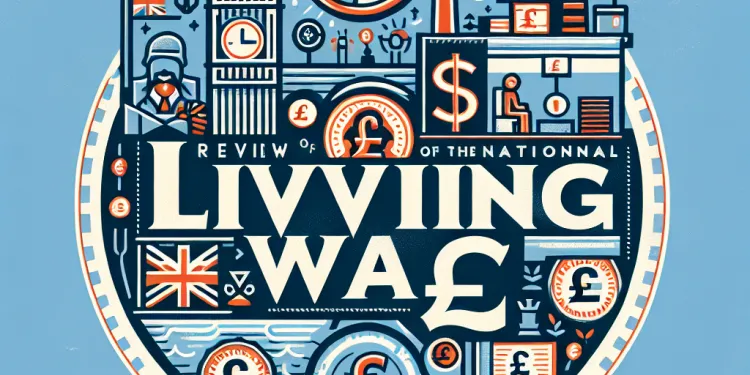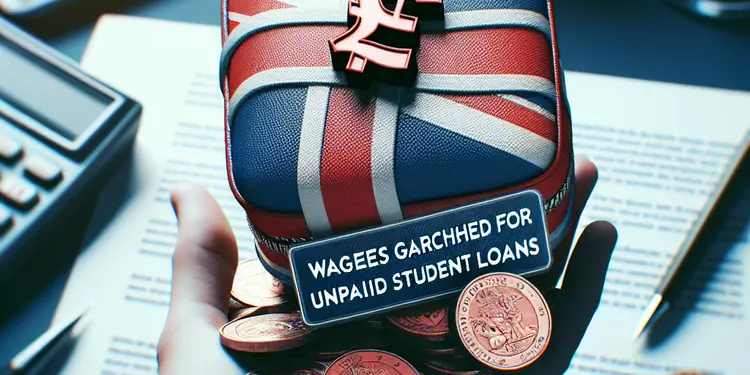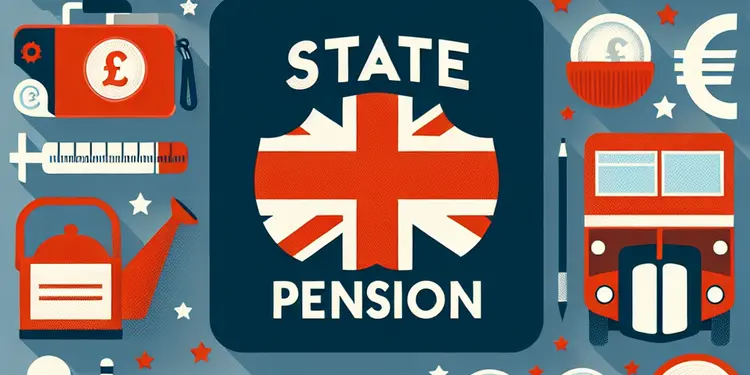
Find Help
More Items From Ergsy search
-

Are apprentices entitled to the National Living Wage?
Relevance: 100%
-

Who is eligible for the National Living Wage?
Relevance: 76%
-

Why is the National Living Wage being increased?
Relevance: 72%
-

How does the National Living Wage differ from the National Minimum Wage?
Relevance: 72%
-

Is the Living Wage Foundation's rate the same as the National Living Wage?
Relevance: 70%
-

Are employers legally required to pay the National Living Wage?
Relevance: 68%
-

UK national living wage increase 2026
Relevance: 67%
-

What is the new UK National Living Wage for 2026?
Relevance: 65%
-

Are zero-hour contract workers entitled to the National Living Wage?
Relevance: 63%
-

How often is the National Living Wage reviewed?
Relevance: 62%
-

How is the National Living Wage calculated?
Relevance: 62%
-

How does the UK National Living Wage compare internationally?
Relevance: 60%
-

How can I calculate my new earnings based on the National Living Wage increase?
Relevance: 58%
-

Will the increase in the National Living Wage affect inflation?
Relevance: 58%
-

What happens if an employer pays below the National Living Wage?
Relevance: 56%
-

Where can I find official announcements on the National Living Wage?
Relevance: 56%
-

Does the National Living Wage increase mean my taxes will change?
Relevance: 39%
-

How often do wage rates change in the UK?
Relevance: 38%
-

When will the new National Living Wage come into effect?
Relevance: 28%
-

Do gig workers have the right to a minimum wage?
Relevance: 25%
-

Can my wages be garnished for unpaid student loans?
Relevance: 25%
-

What should I do if my employer does not pay the new National Living Wage?
Relevance: 25%
-

How does the National Living Wage increase impact small businesses?
Relevance: 25%
-

How does the National Trust support career development?
Relevance: 23%
-

What is the National Trust?
Relevance: 21%
-

Do I need to pay tax on the £500 cost of living payment?
Relevance: 21%
-

What are National Trust Jobs?
Relevance: 20%
-

Are there any apprenticeship routes to becoming an NHS nurse?
Relevance: 20%
-

Are there seasonal jobs with the National Trust?
Relevance: 20%
-

Does the National Trust offer internships?
Relevance: 19%
-

Can I work for the National Trust part-time?
Relevance: 19%
-

What if I have gaps in my National Insurance record?
Relevance: 19%
-

Is there a change in National Insurance rates for 2026?
Relevance: 19%
-

Do National Trust jobs require travel?
Relevance: 19%
-

Impact of Cost of Living on UK Communities
Relevance: 19%
-

Navigating the UK Cost of Living Crisis: Tips for Families
Relevance: 19%
-

What types of positions are available at the National Trust?
Relevance: 18%
-

Is the £500 cost of living payment taxable?
Relevance: 18%
-

Can I get a job with the National Trust if I am a student?
Relevance: 18%
-

Is the basic State Pension enough to live on?
Relevance: 18%
Introduction
The concept of apprenticeships has been a cornerstone of the UK’s approach to skills development and employment. While apprentices gain valuable hands-on experience in their chosen field, it's vital to address their compensation. One aspect often questioned is whether apprentices are entitled to the National Living Wage. This topic is crucial for both employers and apprentices to understand the legal framework and rights concerning wages in the UK.
Apprenticeship Wage Structure
Apprentices in the UK are entitled to a specific minimum wage known as the "apprenticeship rate" rather than the National Living Wage, especially during the initial stages of their training. As of 2023, the apprenticeship rate is lower than the National Living Wage, reflecting the dual goal of providing training and work experience.
Apprentices under the age of 19 or those who are in the first year of their apprenticeship are entitled to this rate. The government sets this rate annually, and it is applicable regardless of the sector or region where the apprenticeship takes place.
Entitlement to the National Minimum Wage
Once apprentices aged 19 and over complete their first year, they become eligible for the National Minimum Wage (NMW) appropriate to their age group. This inclusion ensures that while apprentices continue to learn, they receive fair compensation aligned with their age and experience. It’s important to note that the National Minimum Wage is distinct from the National Living Wage.
National Living Wage
The National Living Wage applies to workers aged 23 and over and is the highest of the minimum wage rates set by the UK government. However, apprentices under 23 are typically not eligible for this wage unless they complete their apprenticeship and meet other criteria.
The designation of the National Living Wage is meant to provide a living standard threshold for those not in training and with more significant responsibilities and typically higher expenses than younger workers or apprentices.
Employer Responsibilities
Employers must ensure that they comply with the minimum wage rates applicable to their apprentices. Non-compliance can lead to penalties and damage to the employer's reputation. Therefore, understanding and adhering to wage regulations is critical for both the financial health of the business and the well-being of its apprentices.
Conclusion
While apprentices are not automatically entitled to the National Living Wage, they have a structured wage policy that supports their training and development stages. As apprentices grow older and gain more experience, their wage entitlements adjust accordingly. Therefore, it is essential for both apprentices and employers to be aware of these distinctions to maintain fair practices and ensure compliance with UK wage laws.
Introduction
Apprenticeships are a way to learn new skills and get a job in the UK. Apprentices learn by doing work in their field, but it's important to know about their pay too. People often ask if apprentices get paid the National Living Wage. It’s important for both employers and apprentices to know the rules about pay in the UK.
Apprenticeship Pay
In the UK, apprentices get a special minimum wage called the "apprenticeship rate." They do not get the National Living Wage at first. As of 2023, the apprenticeship rate is lower because apprentices are also getting training. This rate is for apprentices under 19 years old or those in their first year of apprenticeship. The government decides this rate each year, and it doesn't matter where or what job the apprenticeship is in.
Getting More Pay Later
After turning 19 and finishing the first year, apprentices get the National Minimum Wage for their age. This is a different rate than the National Living Wage. This rule makes sure apprentices get fair pay as they learn more and get older.
National Living Wage
The National Living Wage is for people who are 23 years old and over. It is the highest pay rate set by the UK government. But, apprentices under 23 usually don’t get this unless they finish their apprenticeship and meet certain other rules. The National Living Wage is to help older workers who have more costs and responsibilities.
What Employers Must Do
Employers must make sure they pay the right wage to apprentices. If they don’t, they might be fined and people might not want to work for them. It's important for employers to know and follow the pay rules to take care of their business and their apprentices.
Conclusion
Apprentices don't get the National Living Wage right away, but they have a plan that fits their training. As apprentices get older and learn more, their pay increases. Both apprentices and employers need to know these rules to be fair and follow UK pay laws.
Frequently Asked Questions
What is the National Living Wage?
The National Living Wage is the minimum wage per hour most workers in the UK over a certain age are entitled to by law.
Are apprentices entitled to the National Living Wage?
Apprentices are entitled to the apprentice rate if they are under 19 or in the first year of their apprenticeship. They receive the National Living Wage if they are 19 or over and have completed the first year of their apprenticeship.
What is the apprentice rate?
The apprentice rate is a lower minimum wage than the National Living Wage, specifically for apprentices under 19 or those in their first year.
At what age can an apprentice qualify for the National Living Wage?
An apprentice can qualify for the National Living Wage at age 19 or over, provided they have completed the first year of their apprenticeship.
Do all apprentices receive the apprentice rate?
No, only apprentices who are under 19 or in the first year of their apprenticeship receive the apprentice rate; others receive higher rates based on age and experience.
How much is the apprentice rate?
The apprentice rate is updated annually, and specific rates can be checked on the UK government's official website.
If I am 20 and in my second year of apprenticeship, what wage do I receive?
If you are 20 and in your second year of apprenticeship, you are entitled to the National Living Wage or the National Minimum Wage for your age group.
Where can I find the current National Living Wage and apprentice rate?
The current rates are available on the UK government's official website on their National Minimum Wage and National Living Wage pages.
Does the National Living Wage apply to apprentices in all sectors?
Yes, the National Living Wage applies to apprentices in all sectors who meet the age and experience criteria.
What happens if an employer does not pay the National Living Wage to eligible apprentices?
Employers not paying the appropriate wage can face enforcement action by HM Revenue and Customs, including fines and being publicly named.
How often are the wage rates for apprentices reviewed?
Wage rates for apprentices are reviewed annually by the UK government.
Are part-time apprentices entitled to the National Living Wage?
Part-time apprentices are entitled to the same wage rates as full-time apprentices, based on age and apprenticeship year.
How does the wage rate change after the first year of an apprenticeship?
After the first year, apprentices entitled by age to the National Living Wage or National Minimum Wage should receive the rate applicable to them.
Can an apprentice be paid less than the apprentice rate?
No, it is illegal to pay apprentices less than the established apprentice rate during their first year if under 19, and higher rates apply thereafter.
Are apprentices entitled to other employment benefits in addition to the wage?
Yes, apprentices are entitled to the same employment benefits as other employees, such as paid holiday, except certain benefits related to length of service.
Who enforces the payment of the National Living Wage?
The enforcement of the National Living Wage is done by HM Revenue and Customs (HMRC) in the UK.
Do apprentices have to pay tax on their wages?
Yes, apprentices have to pay tax and National Insurance on their income if they earn above the personal allowance threshold.
Is there any support available for apprentices not receiving the correct pay?
Yes, apprentices can contact the ACAS helpline or HMRC for support and to report underpayment.
What is the age threshold for the National Living Wage?
The National Living Wage applies to workers aged 23 and over, but apprentices who meet certain criteria may receive it earlier.
Does apprenticeship training time count towards the working hours for which apprentices should be paid?
Yes, apprentices must be paid for time spent training or studying as part of their apprenticeship, whether at work or at a college or training organisation.
What is the National Living Wage?
The National Living Wage is the lowest pay you can get if you are 23 or older and working. It's the law.
Here are some tips to help:
- Use pictures to understand better.
- Ask someone to explain if you don’t understand.
- Re-read sentences slowly.
The National Living Wage is the lowest amount of money workers in the UK must be paid per hour. This is set by law for most people over a certain age.
Do apprentices get paid the National Living Wage?
Apprentices are people who learn while they work. They might not get paid the same as other workers.
Young apprentices often get a different pay rate. This is called the National Minimum Wage for apprentices.
Once an apprentice is 19 years old and finishes their first year, they should get the National Living Wage.
It's good to talk to someone if you're unsure about your pay. You can also use an online pay calculator to check your wages.
If you are learning a job (an apprentice) and you are under 19 or in your first year, you get a special pay rate just for apprentices.
If you are 19 or older and have finished your first year, you get paid the National Living Wage.
If you want help understanding, you can use tools like reading apps or ask someone to explain hard parts.
What is the apprentice rate?
An apprentice is someone who is learning a job. They usually get paid a special amount of money called the "apprentice rate." This is how much money they earn while they learn. It might be less than other workers because they are still training.
If you want help understanding your pay, you can:
- Ask your boss or a teacher to explain it to you.
- Use a calculator to figure out how much money you make each week.
- Look for websites or apps that help you learn more about apprenticeships and money.
An apprentice is someone who is learning a job. They might get paid less than other workers. This is called the apprentice rate. It is for people under 19 or in their first year as an apprentice.
How old must an apprentice be to get the National Living Wage?
An apprentice can get the National Living Wage when they are 23 years old or older.
If you need help reading and understanding information, you can:
- Ask someone to read it out loud to you.
- Use a tool to read the text on your screen.
- Break the text into smaller parts.
If you are an apprentice and you are 19 years old or older, you can get the National Living Wage. But, you must finish the first year of your training first.
Do all apprentices get paid the apprentice rate?
No, not all apprentices get the apprentice rate. Only those who are under 19 or in their first year of training get it. Others get more money, depending on how old they are and how much they know.
What is the pay for an apprentice?
The apprentice pay rate changes every year. You can look up the latest rates on the UK government's official website.
I am 20 years old and in my second year of training. How much money do I get?
It helps to:
- Ask your boss or teacher about your pay.
- Look at your contract for details.
- Visit government websites for information.
You can use a calculator to help with numbers.
If you are 20 years old and in your second year of learning a job (apprenticeship), you should get paid the National Living Wage or the National Minimum Wage for someone your age.
Where can I see how much money the National Living Wage and apprentice rate is?
You can look up the latest National Living Wage and apprentice rate on the UK government website. If you're not sure where to look, ask an adult or someone you trust to help you.
You can also use tools like a computer or smartphone to search online. If reading is tough, try using apps that read text out loud for you.
You can find the latest pay rates on the UK government's website. Look for the pages about National Minimum Wage and National Living Wage.
Do apprentices in every job get the National Living Wage?
An apprentice is someone learning a job. The National Living Wage is the least money a worker can get paid per hour.
Apprentices might not always get the National Living Wage. They could get less money, especially if they are young or just starting to train.
If you are an apprentice and unsure about your pay, ask your boss or a teacher for help. You can also look up information online to learn more.
Yes, apprentices who are old enough and have enough experience must be paid the National Living Wage. This is for all kinds of jobs.
What happens if a boss does not pay the right money to apprentices?
If bosses don't pay the right money, they can get into trouble with HM Revenue and Customs. They might have to pay a fine and their name might be shown to the public.
How often do we check how much money apprentices earn?
Every year, the UK government checks how much money apprentices earn.
Do part-time apprentices get the National Living Wage?
If you work as a part-time apprentice, you might wonder how much money you should earn.
The National Living Wage is the lowest amount businesses can pay for each hour you work. It helps make sure you earn enough money.
To find out if you should get the National Living Wage, ask your boss or look at the rules for apprentices.
It can help to use a calculator online to see how much you should be paid.
Part-time apprentices get the same pay as full-time apprentices. This depends on how old they are and what year they are in their apprenticeship.
What happens to your pay after the first year of an apprenticeship?
After the first year, apprentices who are old enough should get the National Living Wage or National Minimum Wage for their age.
Can apprentices get paid less than the apprentice pay rate?
No, you can't pay apprentices less than the special apprentice pay. This is the rule for their first year if they are under 19. After that, they get more money.
Do apprentices get other work benefits besides their pay?
Yes, if you are an apprentice, you get the same work benefits as other workers. You get things like paid days off. Some benefits, like those you get for working a long time, might be different.
Who makes sure people get the National Living Wage?
In the UK, a group called HM Revenue and Customs (HMRC) makes sure people get paid the National Living Wage.
Do apprentices need to pay tax on their pay?
Apprentices, like other workers, might have to pay tax on the money they earn. If they earn enough, some of it goes to tax.
Here are some simple steps to understand tax:
- Find how much you earn in a year. This is your yearly pay.
- Check the tax rules for your country. Each country has a limit before you pay tax.
- If your yearly pay is more than the limit, you pay tax.
- You can ask an adult or someone at work to help you with this.
Tools that can help:
- Use a calculator to add up your pay.
- Look online for tax help or guides.
- Talk to someone at work about your tax.
Yes, apprentices need to pay tax and National Insurance if they earn more money than the amount the government allows you to earn without paying tax.
Can apprentices get help if not paid right?
Yes, if you are an apprentice, you can get help. You can call the ACAS helpline or HMRC. They can help you if you are not getting paid enough.
What age do you have to be to get the National Living Wage?
The National Living Wage is for people who are 23 years old and older. But some apprentices who follow special rules can get it sooner.
Do apprentices get paid for the time they spend in training?
Yes, apprentices get paid for the time they spend learning or studying during their apprenticeship. This is true whether they are learning at work, or at a college or training place.
Useful Links
Have you found an error, or do you have a link or some information you would like to share? Please let us know using the form below.
-->
This website offers general information and is not a substitute for professional advice.
Always seek guidance from qualified professionals.
If you have any medical concerns or need urgent help, contact a healthcare professional or emergency services immediately.
Some of this content was generated with AI assistance. We’ve done our best to keep it accurate, helpful, and human-friendly.
- Ergsy carfully checks the information in the videos we provide here.
- Videos shown by Youtube after a video has completed, have NOT been reviewed by ERGSY.
- To view, click the arrow in centre of video.
- Most of the videos you find here will have subtitles and/or closed captions available.
- You may need to turn these on, and choose your preferred language.
- Go to the video you'd like to watch.
- If closed captions (CC) are available, settings will be visible on the bottom right of the video player.
- To turn on Captions, click settings .
- To turn off Captions, click settings again.
More Items From Ergsy search
-

Are apprentices entitled to the National Living Wage?
Relevance: 100%
-

Who is eligible for the National Living Wage?
Relevance: 76%
-

Why is the National Living Wage being increased?
Relevance: 72%
-

How does the National Living Wage differ from the National Minimum Wage?
Relevance: 72%
-

Is the Living Wage Foundation's rate the same as the National Living Wage?
Relevance: 70%
-

Are employers legally required to pay the National Living Wage?
Relevance: 68%
-

UK national living wage increase 2026
Relevance: 67%
-

What is the new UK National Living Wage for 2026?
Relevance: 65%
-

Are zero-hour contract workers entitled to the National Living Wage?
Relevance: 63%
-

How often is the National Living Wage reviewed?
Relevance: 62%
-

How is the National Living Wage calculated?
Relevance: 62%
-

How does the UK National Living Wage compare internationally?
Relevance: 60%
-

How can I calculate my new earnings based on the National Living Wage increase?
Relevance: 58%
-

Will the increase in the National Living Wage affect inflation?
Relevance: 58%
-

What happens if an employer pays below the National Living Wage?
Relevance: 56%
-

Where can I find official announcements on the National Living Wage?
Relevance: 56%
-

Does the National Living Wage increase mean my taxes will change?
Relevance: 39%
-

How often do wage rates change in the UK?
Relevance: 38%
-

When will the new National Living Wage come into effect?
Relevance: 28%
-

Do gig workers have the right to a minimum wage?
Relevance: 25%
-

Can my wages be garnished for unpaid student loans?
Relevance: 25%
-

What should I do if my employer does not pay the new National Living Wage?
Relevance: 25%
-

How does the National Living Wage increase impact small businesses?
Relevance: 25%
-

How does the National Trust support career development?
Relevance: 23%
-

What is the National Trust?
Relevance: 21%
-

Do I need to pay tax on the £500 cost of living payment?
Relevance: 21%
-

What are National Trust Jobs?
Relevance: 20%
-

Are there any apprenticeship routes to becoming an NHS nurse?
Relevance: 20%
-

Are there seasonal jobs with the National Trust?
Relevance: 20%
-

Does the National Trust offer internships?
Relevance: 19%
-

Can I work for the National Trust part-time?
Relevance: 19%
-

What if I have gaps in my National Insurance record?
Relevance: 19%
-

Is there a change in National Insurance rates for 2026?
Relevance: 19%
-

Do National Trust jobs require travel?
Relevance: 19%
-

Impact of Cost of Living on UK Communities
Relevance: 19%
-

Navigating the UK Cost of Living Crisis: Tips for Families
Relevance: 19%
-

What types of positions are available at the National Trust?
Relevance: 18%
-

Is the £500 cost of living payment taxable?
Relevance: 18%
-

Can I get a job with the National Trust if I am a student?
Relevance: 18%
-

Is the basic State Pension enough to live on?
Relevance: 18%


